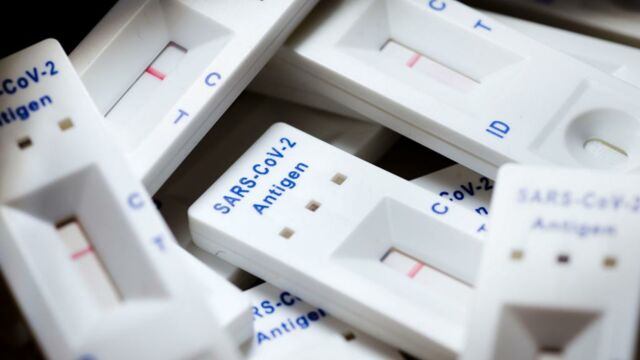The Biden Administration has announced that the federally-funded, free Covid-19 test program will be discontinued as of Friday, 2 September.
Discover our latest podcast
Under the program, citizens could request at-home rapid tests for free at COVID.gov. In total, over 600,000 tests were delivered across the country, with each household having the possibility to obtain 16 tests across the 3 rounds of offers made by the government.
‘A step backward’
Without enough Congressional funding, however, the Biden Administration has decided to ‘preserve [their] limited remaining supply’ of rapid tests, a senior administration official said to ABC News. A banner on the COVID.gov website now reads:
Ordering through this program will be suspended on Friday, September 2, because Congress hasn't provided additional funding to replenish the nation's stockpile of tests
As early as April, the now-former press secretary Jen Psaki warned thatCovid-19 funding was so low, programs aimed at addressing it would have to end. She added that failed attempts to secure Covid-related funding in Congress were ‘a step backward for our ability to respond to this virus.’

What now?
It’s possible that the reserved tests could be rolled out again when infection rates are higher, but lack of Congressional funding ultimately means that more Americans could have to pay for Covid-19 tests or may choose not to test at all. Plus, if cases surge and the government remains unprepared, the American taxpayer will be the one to bear the increased financial burden.
Despite the free Covid-19 test program’s cessation, Americans can be reimbursed for at-home tests if they are insured through qualifying private agencies, Medicare, or Medicaid. Free tests will also continue to be distributed to community and care-based centers around the country, in order to ‘ensure equitable access to tests’.
Meanwhile, Democrats are coming up with a game-plan to secure additional Covid-related funding this autumn. A $21 billion emergency funding bill was introduced in July, whose founder and co-authors promised would be passed later this year.
Read more:
⋙ ‘Covid -style’ measures could be introduced this winter, what does this mean?
⋙ Covid-19: Omicron boosters to be rolled out in autumn, are you eligible to get them?
⋙ Covid-19: This common symptom could be a sign of a dangerous disease















